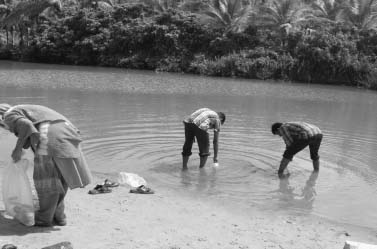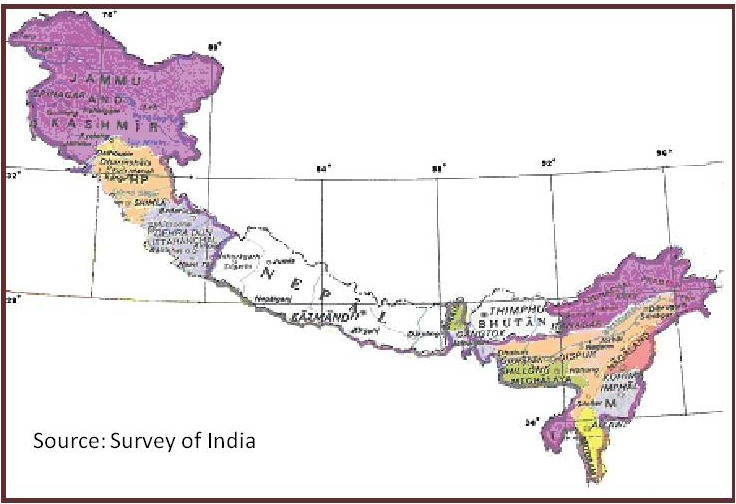Water Management
Assam’s strategy and action plan on climate change - Recommendations - First draft - ASTEC (2011)
Posted on 07 Nov, 2011 11:20 AMThis report by the Assam Science Technology & Environment Council (ASTEC) contains the compiled recommendation of three consultative workshops organized in Assam University, Gauhati University and
Northeast monsoon arrives in Tamil Nadu, Kerala, Lakshadweep and coastal Andhra Pradesh, snowfall in Himachal and Kashmir - News Roundup (15 to 31 October 2011)
Posted on 06 Nov, 2011 04:59 PMThe monsoon has become active in the states of Tamil Nadu, Kerala, Lakshadweep and parts of coastal Andhra Pradesh. There are also reports of heavy rainfall in parts of Karnataka. At the same time, news from the north in the states of Himachal Pradesh and Kashmir includes reports of a cold wave and rains and the first snowfall of the season.
Northeast monsoon
WALAMTARI, Hyderabad, invites applications for fellowship program on Integrated Water Management - Apply by November 15, 2011
Posted on 06 Nov, 2011 10:53 AM
The Water and Land Management Training & Research Institute (WALAMTARI) is recognized as one of the only four Class-I Institutes in AP and is widely known in India and outside for the activities under Participatory Irrigation Management (PIM). The Institute has faculty from two major streams connected with Irrigated Agriculture i.e. Irrigation Engineering and Agriculture. Faculty from both these streams is mainly practicing professionals and hence their inputs are straight from the field and hence more practical and hands-on. WALAMTARI has collaboration from professional engineering bodies like the Engineering Staff College of India (ESCI), National Construction Academy (NAC), etc. WALAMTARI is in the process of developing a pool of Roving Trainers (RT) from out of practicing farmers and engineers for more effective and enlarged practical capacity building at local level.
Water poverty in urban India - A study of major cities - A seminar paper - Tata Institute of Social Sciences
Posted on 05 Nov, 2011 12:02 PMThis seminar paper submitted for the UGC Summer Programme at the Jamia Millia Islamia University describes the findings of a study that explored the quantity of water used in domestic households vis-à-vis the recommended quantity of water consumption in seven major Indian cities, n
Aquatech India 2012 - Call for paper abstracts on integrated waste and water management – Apply by November 15, 2011
Posted on 04 Nov, 2011 08:38 PM

The 3rd edition of Aquatech India promises to be a one-of-its-kind, international, high quality water technology event serving the complete Indian water sector. Aquatech India incorporates all sectors of process, drinking and waste water industries under one roof, making it the only complete platform for the exciting Indian water sector. Recognized for its excellence in providing unmatched marketing opportunities and exposure, the event is set to make an even more lasting impression on both the exhibitors as well as delegates.
Advancing development - Towards sustainable livelihoods - Madurai Symposium - DHAN Foundation - September 14-18 ( 2011)
Posted on 04 Nov, 2011 08:47 AMThe Madurai Symposium organised by the
Environmental monitoring programme on water quality in Kerala – A report by KSCSTE and CWRDM
Posted on 03 Nov, 2011 08:54 PM This report by the Kerala State Council for Science, Technology and Environment (KSCSTE) and Centre for Water Resources Development and Management (CWRDM) on water quality monitoring in Kerala covers all its forty four river basins. This is being done under the “Environmental Monitoring Programme on Water Quality” under which samples are being collected both from surface and groundwater sources.
This report by the Kerala State Council for Science, Technology and Environment (KSCSTE) and Centre for Water Resources Development and Management (CWRDM) on water quality monitoring in Kerala covers all its forty four river basins. This is being done under the “Environmental Monitoring Programme on Water Quality” under which samples are being collected both from surface and groundwater sources.
Groundwater sampling stations were fixed after conducting a sanitary survey in the panchayats. Water Quality Information System is being developed using Geographical Information Systems (GIS) to manage the water quality from point or non-point source of pollution.
In the first phase of the project, three river basins of Kerala viz. Kabbini, Periyar and Neyyar were monitored. The network was later expanded to basins such as Chaliyar, Kadalundi, Meenachil, Karamana, Anjarakandi, Pamba, Muvattupuzha, Bharatapuzha, and Chalakudy.
Water data at your fingertips !
Posted on 02 Nov, 2011 11:21 AMThe Data Finder aims to bring together all water data from all over the web and put them in one convenient searchable tool so you can use it for any projects you are working on.
Climate change impact assessment of water resources of India - A paper from Current Science
Posted on 02 Nov, 2011 10:52 AMThis paper published in the journal Current Science presents the findings of a study has been taken up to quantify the possible impacts of the climate change on the water resources of Indian river systems within the constraints of the uncertainty of climate change predictions. The study uses the PRECIS daily weather data to determine the spatio-temporal water availability in the river systems.
A distributed hydrological model, namely SWAT has been used to simulate all the river basins of the country. The analysis has been performed to evaluate the severity of droughts and floods and thus identify the vulnerable hotspots that may require attention in view of the climate change in various parts of the country.
Impacts of climate change and climate variability on the water resources are likely to affect irrigated agriculture, installed power capacity, environmental flows in the dry season and higher flows during the wet season, thereby causing severe droughts and floods in urban and rural areas. Climate change impacts on water resources which are addressed and analysed in the present study include impacts on annual and inter-annual water availability as well as extreme events of droughts and floods.
Problems of hill states and hill areas and ways to ensure that they do not suffer in any way because of their peculiarities - Report of the Task Force - Planning Commission
Posted on 01 Nov, 2011 09:37 PMThis report by the Task Force, constituted by the Planning Commission, Government of India in April, 2008, is an outcome of the need expressed by the Prime Minister of India for a fresh analysis of the problems of the hill states and hill areas of the country in a manner that suggests that these areas do not suffer in any way on account of their peculiarities.
Opinions have been expressed that the pace of development of the Indian Himalayan Region (IHR) has been slow when compared to the rest of the country. At the same time, its fragile nature and difficulty of taking up conventional development initiatives has not been appreciated. In this report, arguments have been presented recommending reshaping of policies to bring in the “mountain perspective” for the IHR, in the national planning. Emphasis has also been laid on developing norms for good governance and for harnessing social capital at the grassroots.








